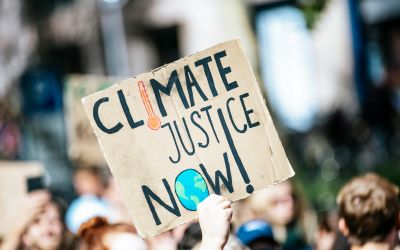BT talks its ‘threefold’ approach to tackling climate change
Climate Action spoke to BT’s Head of Environmental Sustainability, Gabrielle Ginér, to discuss what role sustainability plays at the company.

BT is one of the most established and familiar names in telecoms. It’s become a household name and will celebrate its 50th anniversary next year. Throughout that time, sustainability has grown to play an important role at the company.
Adam Wentworth at Climate Action spoke to BT’s Head of Environmental Sustainability, Gabrielle Ginér, to discuss the issue in more depth.
How did you first become interested in sustainability issues?
I have spent my summers on a small island in the Baltic Sea, living close to nature and also been a very keen scuba diver. I have, therefore, seen the impact of climate change on our seas and our planet and wanted to get involved; to try and help reverse the adverse effects that we are experiencing.
To what extent does sustainability play a role in BT’s day-to-day decision making?
BT has a long-standing ethos to be a responsible and sustainable business leader and our environmental sustainability journey actually started back in 1992 when we first began to measure our corporate carbon footprint, and set our first reduction target.
BT’s role in combatting climate change is threefold:
- To reduce our own emissions in line with international policy
- To help others reduce their emissions through our products and services; for example, by replacing business travel with video and audio calls
- To share knowledge, collaborate, and inspire others to take action
We were one of the first companies in the world to set a science-based target in 2008 when we set a goal to cut our carbon emissions intensity by 80 per cent by 2020 against a 1996/97 baseline – a goal we achieved four years ahead of time in 2016.
We therefore set a new science based target in 2017 based on a 1.5 degree Celsius trajectory. This target is to reduce our Scope 1 and 2 carbon emissions intensity by 87 per cent by 2030 against a 2016/17 baseline and reduce carbon emissions associated with our supply chain by 29 per cent in the same timeframe.
BT is piloting a new sustainability contract clause with your suppliers. Can you explain more how you intend this system will work?
The clause requires suppliers to benchmark their emissions for the supply of products to BT and deliver emissions reductions over the term of their contract with BT. Through this approach, we are working with suppliers to identify initiatives to implement carbon and energy savings. Sustainability issues now get reviewed regularly in executive meetings as contractual obligations are measured on a regular basis.
What do you think are the biggest obstacles in achieving your sustainability goals?
We have set some very ambitious carbon reduction targets both for our own operations and for our supply chain. Meeting these targets is dependent on collaboration with partners, something which is key to tackling climate change. Fortunately, there is a rich history of collaboration on climate action, and the collective voice of leading businesses through initiatives such as We Mean Business and World Business Council for Sustainable Development. These have helped us make progress faster, scale ambition and inspire others to take action. We believe that through collaboration we will be able to meet these targets.






